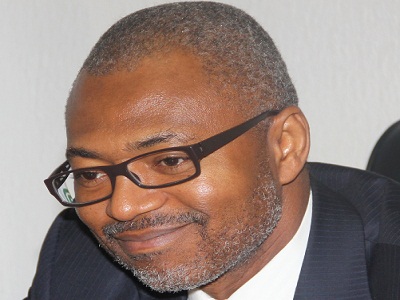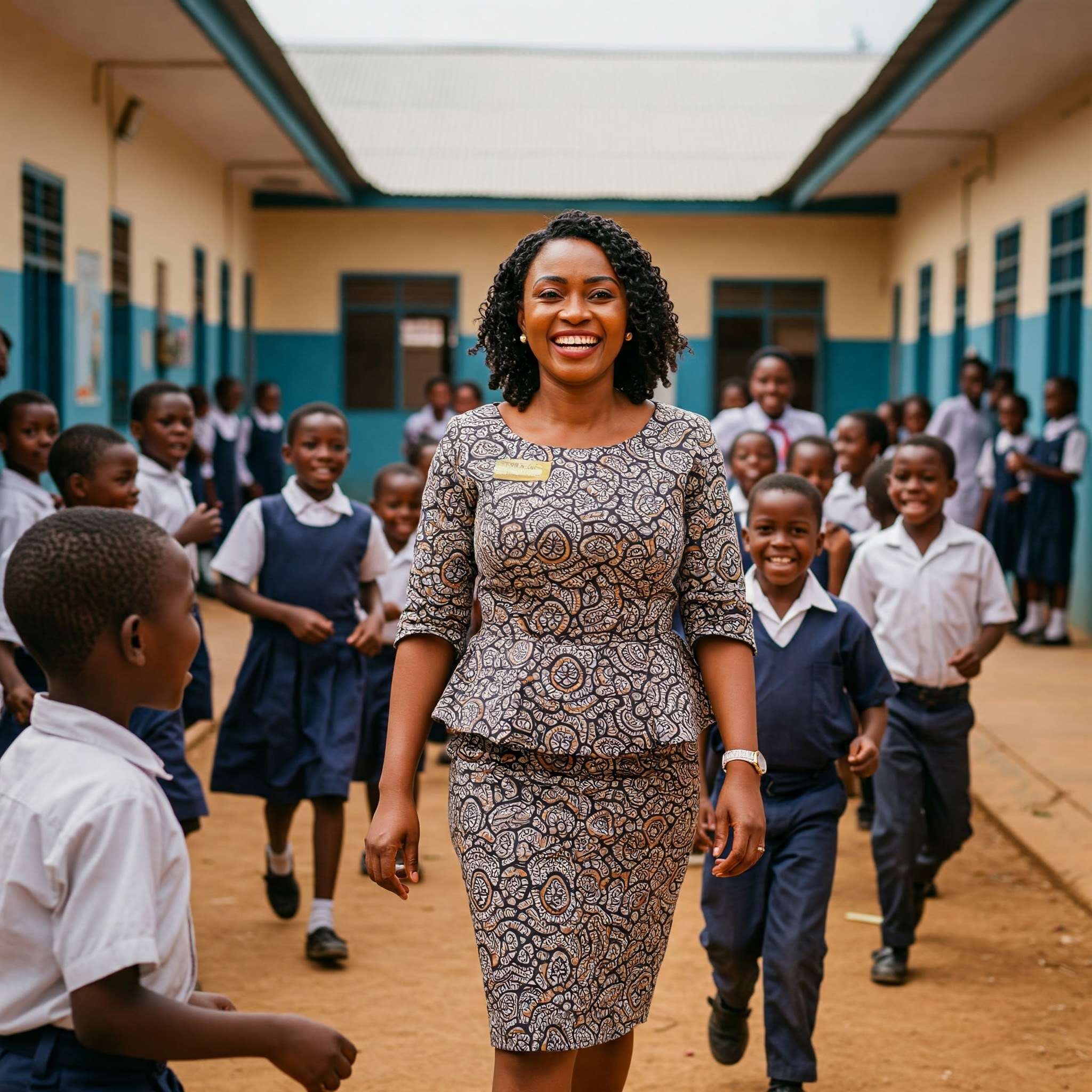Broadcasting
47 African Countries Agree on Frequency Coordination for Digital Switchover

Frequency coordination negotiations have succeeded in setting up the mechanism to deploy digital television in 47 Sub-Saharan African countries.
The consolidation of national plans to implement the digital switchover in the African region is in conformity with the deadlines of June 2015 (for UHF) and June 2020 (for VHF in 33 countries) set in 2006 by ITU’s Regional Radio communication Conference (RRC-06), which adopted the GE06 TV Plan.
This landmark also makes Africa the first region to be in a position in 2015 to allocate bandwidth freed up by the transition to digital television – the so-called ‘digital dividend’ – to the mobile service for both the 700 MHz and 800 MHz bands.
Decisions of the World Radio communication Conference 2012 (WRC-12) to facilitate availability of the digital dividend to the mobile service will be effective with some technical refinements immediately after the next World Radio communication Conference in 2015 (WRC-15).
Hamadoun I. Touré, ITU secretary-general expressed his appreciation to the high level of cooperation extended to the process by African Telecommunications Union (ATU) and Mr Abdoulkarim Soumail, its secretary-general.
Mr François Rancy, director of ITU’s Radiocommunication Bureau, announced that sub-Saharan African countries have begun submitting official modifications to the GE06 Plan following the final frequency coordination meeting held in Nairobi, 17-19 July 2013 and the deadline of 31 August set for notifications.
“The objective was to enable African countries to allocate the digital dividend to mobile services in the band 694-862 MHz, as a regionally harmonized implementation of the decisions taken at the World Radio communication Conference in 2012,” Rancy said.
“This objective was reached by re-planning the spectrum requirements of television broadcasting in the 470-694 MHz frequency band.”
The meeting in Nairobi organized jointly by ITU and the African Telecommunications Union (ATU) and hosted by the Communications Commission of Kenya (CCK), attracted 124 participants from 35 Member States.
It was the third and last overall coordination meeting of African countries, after similar meetings in Bamako (March 2011) and Kampala (April 2011) and a number of other bilateral and multilateral meetings held in 2011 and 2012.
Broadcasting
Court Fixes May 8 for Judgment in MultiChoice, FCCPC Dispute over Price Hike

Justice James Omotosho of the Federal High Court in Abuja has fixed May 8 for judgment in the suit filed by MultiChoice Nigeria Limited against the Federal Competition and Consumer Protection Commission (FCCPC).

Justice Omotosho fixed the date after lawyers representing the parties adopted and argued their written addresses for and against the suit.
The court had earlier restrained the Commission from taking “any administrative steps” against the plaintiff following an increase in the service price of two of its brands; DStv and GOtv.
The restraining order was a sequel to a formal request by MultiChoice seeking the court’s protection from planned sanction from the FCCPC, over the increase in the price of DStv and GOtv.
At the proceeding, the court granted the Commission’s request for an extension of time to regularise its processes and also allowed the plaintiff to withdraw its application for interlocutory injunction which has been overtaken by event.
Arguing its case, MultiChoice through Moyosore Onigbanjo, SAN, its lead counsel, submitted that the bone of contention is “whether the defendant have the right to control the price at which the plaintiff offers its services to the public.”
While acknowledging the regulatory powers of the Commission, the senior lawyer argued that the Act establishing the FCCPC did not confer on it the powers to regulate price or prevent anyone including the plaintiff from increasing its prices.
Besides, Onigbanjo stated that the issue of whether the defendant can regulate price has been litigated before between the two parties, adding that the Tribunal had held that the Commission has no powers to regulate prices of goods and services in the country, except the President of the Federal Republic of Nigeria.
The Plaintiff’s lawyer also submitted that even the president who is clothed with the powers to regulate prices has maintained “that his government does not believe in price control” but, that prices are determined by market forces of demands and supplies.
The plaintiff in addition submitted that if the FCCPC has no powers to control price “where does he have the powers to prevent the plaintiff from increasing price.
MultiChoice subsequently accused the Commission of discrimination, stating that all businesses in the country have been increasing their prices in line with economic conditions and inflation without the Commission raising an eyebrow, save with the plaintiff.
He, therefore, urged the court to grant all the reliefs sought in the suit.
While adopting his counter affidavit in opposition to the suit, Professor Joe Agbugu, SAN, lead counsel for the defendant, urged the court to first address the cause of action; which is the the issue of increase in the price of DStv and GOtv.
Agbugu disclosed that the Commission on February 25, wrote the plaintiff after it announced price increase effective from March 1, 2025.
According to the senior lawyer, MultiChoice was summoned to appear before the Commission on February 27, “they wrote that it was not convenient and proposed March 6. We then said that in the interim they should hold on with the price increment.”
Agbugu further stated that, “there was no issue of price regulation or fixing as at the time the action commenced.”
Besides, he claimed that the statute establishing the FCCPC, gave it “powers to check exorbitant pricing” and also powers to “regulate abuse of dominant position in the market” as it relates to prices and passing of cost to the consumer.
“The plaintiff occupies a dominant position in the television and entertainment,” Agbugu claimed, adding that the case before the court is not of price regulation but the powers of the Commission to investigate prices that are deemed exploitative and abuse of dominant position.
“The Commission is not to tell you to use price A or B but to determine that the price is exploitative” he said, “they ran away to be investigated over their planned action.
“Our action is not about price fixing; the issue is about whether the price is exorbitant…the mandate of the Commission is to protect the consumer.”
Reacting to the claim of discrimination, defendant’s lawyer, submitted that, “abuse of dominant position qualified them to be singled out for exorbitant pricing.”
Agbugu subsequently urged the court to strike out the suit and dismiss it because it attacks the major task of the Commission of protecting consumers.
“The suit should be dismissed and the plaintiff returned to us for investigation,” he added.
Responding, Justice Omotosho announced that, “judgment is reserved to May 8.”
Broadcasting
From Struggle to Stability: How FinTech is Helping Nigerian SMEs Overcome Cash Flow Challenges

When Mrs. Agbaje started her school in Ibadan twelve years ago, she didn’t envision a tech-enabled future. Her dream was simple—provide affordable, quality education to children in her community. For the most part, she made it work. But as the school grew, a new challenge took root. It wasn’t infrastructure. It wasn’t teacher retention. It was something far more basic: getting paid.

Each new term brings the same pattern. Parents promise to pay fees “by next week.” Some follow through. Many don’t. As the term wears on, Mrs. Agbaje finds herself juggling spreadsheets, reminder texts, and awkward conversations in car parks or at school gates. Meanwhile, salaries must be paid, books restocked, diesel bought. More often than not, she dips into personal savings to keep things running.
Her story is common across Nigeria. Small businesses—whether they’re schools, salons, logistics firms, or cooperative groups—are constantly navigating the emotional and financial toll of delayed payments. And it’s not just a matter of inconvenience. A recent study by MacTay Consulting found that Nigerian SMEs wait between 60 to 120 days on average to receive payment for services or products already delivered. That kind of delay is more than a hiccup. It threatens livelihoods. It blocks growth. It’s a silent killer.
For Chuks, who runs a car hire service in Enugu, the issue is tied to his bigger corporate clients. They insist on “net 30” or “net 60” terms—industry-speak for “we’ll pay you in a month or two.” That might be manageable for a large fleet with strong cash reserves, but for someone like Chuks, every week matters. With fuel prices rising and maintenance bills stacking up, he’s often forced to park cars because he doesn’t have the cash to fix them—even when work is lined up.
What links these stories is the reality that small businesses operate in a system where money is constantly in motion but rarely on time. Customers often mean well, but their own financial instability creates a domino effect. And the existing tools to manage payments—handwritten ledgers, POS machines, WhatsApp reminders—were never designed for structure. They’re patched solutions to a systemic problem.
Even digital banking, for all its advancement in Nigeria, hasn’t solved this issue. Many SMEs still operate informally, managing finances through personal bank accounts or apps not tailored to business needs. The result is a messy web of follow-ups, reconciliations, and emotional strain. Business owners become debt collectors, chasing down what they’ve already earned, time and time again.
What’s often missed in conversations about entrepreneurship is just how deeply this problem cuts. Payment delays mean rent can’t be paid on time. It means holding off on hiring a new staff member, or letting go of a part-time assistant. It means saying no to growth opportunities, not because they’re not viable, but because the cash flow isn’t predictable enough to take the risk.
And when you zoom out, the implications are national. Small businesses make up over 90% of enterprises in Nigeria. They contribute nearly half of the country’s GDP and employ a significant portion of the workforce. Yet, their greatest enemy isn’t market competition—it’s irregular income. This is a structural inefficiency that deserves far more attention than it gets.
Slowly, however, change is beginning to show. A quiet revolution is underway—one where technology is stepping in not as a trend, but as a tool for financial stability. More SMEs are beginning to explore digital solutions that streamline payments and reduce friction between businesses and customers.
Among these solutions is PaywithAccount, a new tool launched by Nigerian fintech company OnePipe. Designed specifically for businesses with recurring payments—schools, cooperatives, service providers—it allows them to automate collections directly from customers’ bank accounts. With full consent and transparency, payments can be scheduled, reducing the need for repeated follow-ups or awkward reminders.
For Mrs. Agbaje, this has made a significant difference. Parents receive structured payment plans, reminders go out automatically, and debits happen based on prior agreement. She now spends less time tracking who has paid and more time planning curriculum upgrades and engaging with teachers.
The benefit isn’t just financial—it’s emotional. When business owners don’t have to chase payments, they gain time, clarity, and confidence. They can plan ahead, restock inventory, or finally invest in that expansion they’ve put off for years. And for customers, the experience feels more professional, more trustworthy. Everyone wins.
Technology won’t solve every problem for Nigerian SMEs. But smart, well-designed financial tools are starting to remove some of the biggest roadblocks—quietly and effectively. And that’s the point. The best systems aren’t flashy. They work in the background, reducing stress, restoring dignity, and enabling business owners to focus on what truly matters.
For Ope Adeoye, founder of OnePipe, the issue is personal. “Every Nigerian knows someone who runs a business—a cousin, a friend, a neighbour. When they suffer from late payments, it affects whole families and communities. Fixing this isn’t just a business goal—it’s a social one.”
In a country as dynamic and entrepreneurial as Nigeria, the challenge is rarely about lack of ideas. It’s about systems that help those ideas survive. And one of the most overlooked systems is the way money flows—or fails to.
As more SMEs embrace tools that put payment on autopilot, a future of stability—rather than constant survival—starts to feel possible. And in a nation powered by small businesses, that kind of shift could move mountains.
Broadcasting
AFRIMA Collaborates with BridgeAfric and UNESCO for Lagos Global Music Workshop

Lagos is set to welcome top music business leaders, celebrities, business executives, and creative industry professionals from around the world as All Africa Music Awards, AFRIMA, partners with bridgeAfric, and UNESCO to host the Showbiz101 Global Workshop and Music Creation Camp.

The event, scheduled to take place from March 26th to 29th, 2025 aims to train young creatives, foster international collaborations, and further enhance the capabilities of creators and professionals along the value chain of music production and business.
Adenrele Niyi, Chief Experience Officer, (CXO), AFRIMA, said the partnership with bridgeAfric on the event underlined the AFRIMA institution’s commitment to empowering Africa’s creative industry.
“As AFRIMA, part of our mission is building capacity and fostering cross-border collaborations by empowering Africa’s creative industry and by providing platforms for artists to collaborate, grow, and break boundaries. Partnering with bridgeAfric for the Showbiz101 Global Workshop & Music Creation Camp is a no-brainer. This initiative is about more than just music; it’s about equipping young creatives with the tools, knowledge, and global connections they need to thrive in the industry,” Niyi said.
The AFRIMA CXO added that the event aligns with AFRIMA’s seven pillars, which include the Music Awards, Music Festivals, AFRIMA Creative Academy, Talent Discovery and Promotions, Music Business Hub, Advocacy, and Advisory & Policy Debates. “Our goal is to reinforce Africa’s position as a moving powerhouse on the global music scene—one hit, one artist, one opportunity at a time and we are excited to be at the fore front of driving this initiative,” she concluded.
According to Victoria Nkong, President of bridgeAfric who is also an Associate Producer for AFRIMA, the workshop aims to support the future of Africa’s creative industry by focusing on key areas including the need to educate and train young talents, saying, “We believe learning is essential to solving problems in the entertainment industry. This workshop will equip young people with the skills and knowledge they need to succeed.”
She said the event will feature performances, training sessions, and recording opportunities for artists.
Nkong added that the five-day event will bring top musicians together for a three-day global music camp, where they will create songs as a team. “By the end of the camp, we will have a global EP featuring top African stars from different countries,” she said.
“Another goal of the workshop is to help artists reach new audiences by connecting them with international music executives. This will open doors for them to promote their music in different parts of the world.”
Some of the top artists who have confirmed their participation in the conference and recording camp are Juma Jux from Tanzania, Nadia Nakai from South Africa and DJ Neptune from Nigeria. Ivory Coast will be well represented by global music superstars like the AFRIMA Award winner Didi B, Himra, Suspect 95, Kikimoteleba, Goulam, and Gabin Bao.
Other notable participants include Bizzle Osikoya, Co-founder of The Plug Entertainment, and Sesan Adeniji, General Manager of Vybz FM.
From Algeria, DJ MohGreen will bring his expertise, while Eric Bellamy from Live Nation Paris, France will contribute his knowledge of the global music industry. Sonia Aimy from Canada and Wendy Harawa from Malawi are also expected.
In addition to the workshop and music camp, Nkong said a welcome Industry party is scheduled for Wednesday to officially receive the participants.
She added that registration is free for music producers, songwriters, and artists who want to learn, network, and advance their music careers.

 E-Business3 days ago
E-Business3 days agoFG Plans to Link Social Register to NIN for Humanitarian Crisis

 Telecom3 days ago
Telecom3 days agoKeystone Bank Seeks to Join Suit in Tussle over 9Mobile Shares Ownership

 Broadcasting3 days ago
Broadcasting3 days agoWe’re Confident in the Super Eagles – Karl Toriola

 E-Financial3 days ago
E-Financial3 days agoFG to Harmonise Fiscal Data Across MDAs

 E-Business3 days ago
E-Business3 days agoFive WhatsApp Business Features Every Small Business Should Be Using

 News3 days ago
News3 days agoSenate Probes Federal Character Violations by NDIC, Others

 News2 days ago
News2 days agoCourt Throws Out Falana’s Fraud Case against Ekeh, Zinox Boss and Others

 E-Financial3 days ago
E-Financial3 days agoZumax Files N4.1Bn Suit against CBN over ‘Fraudulent’ Receivership





















